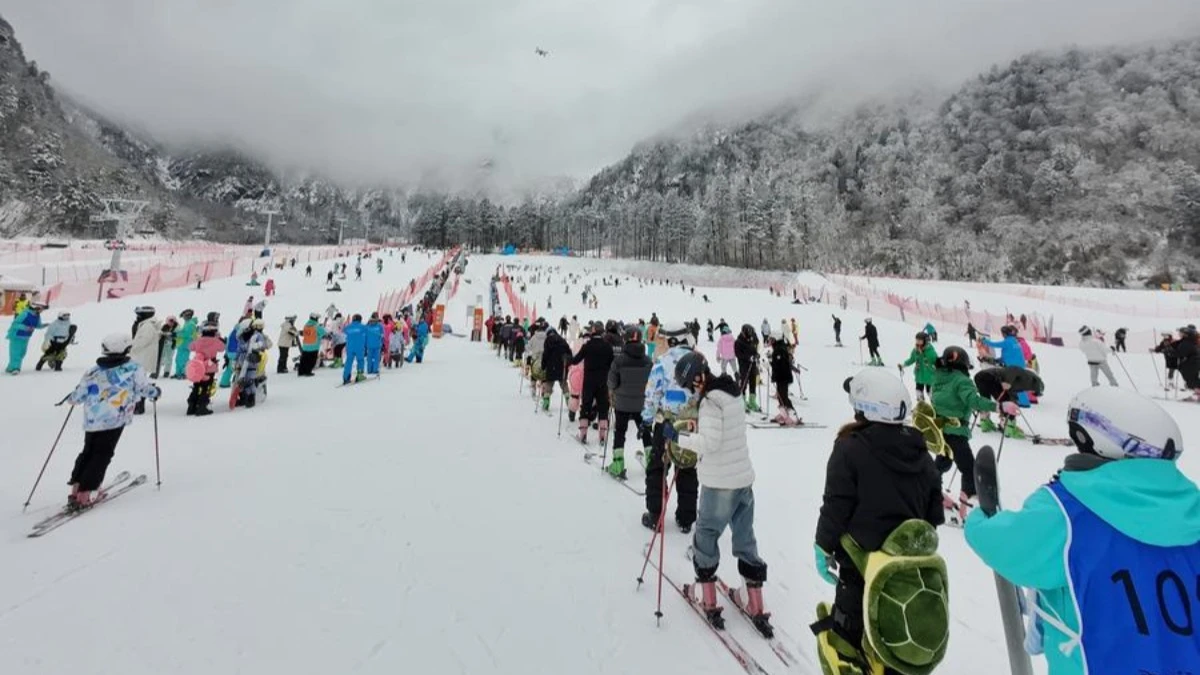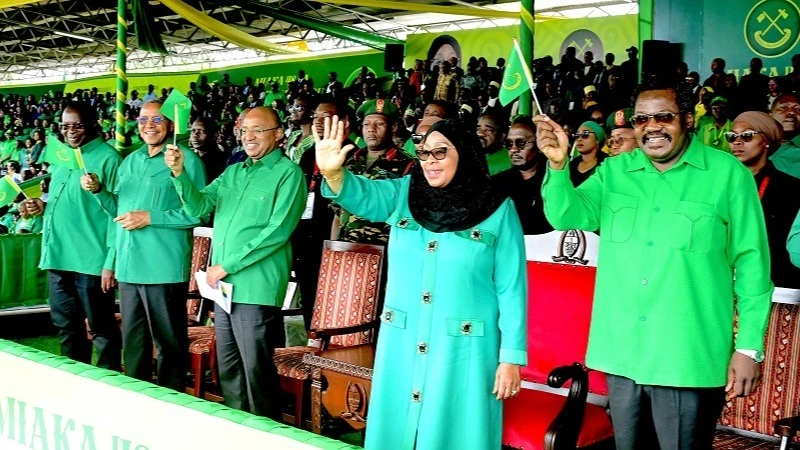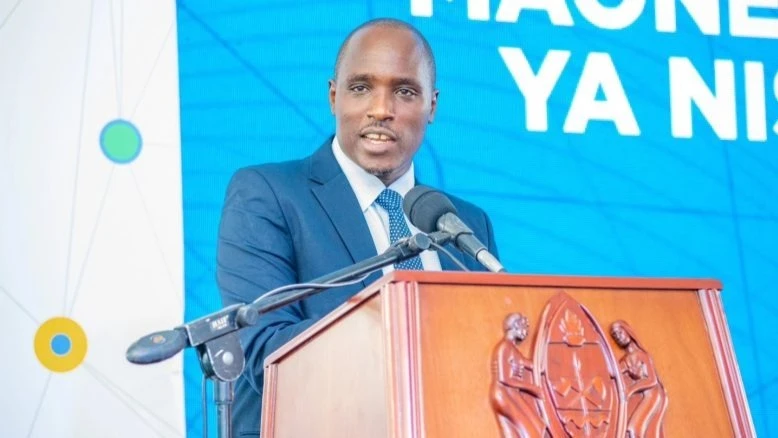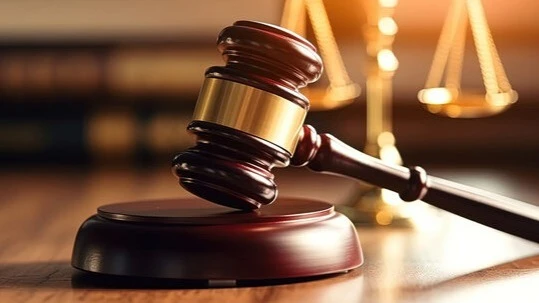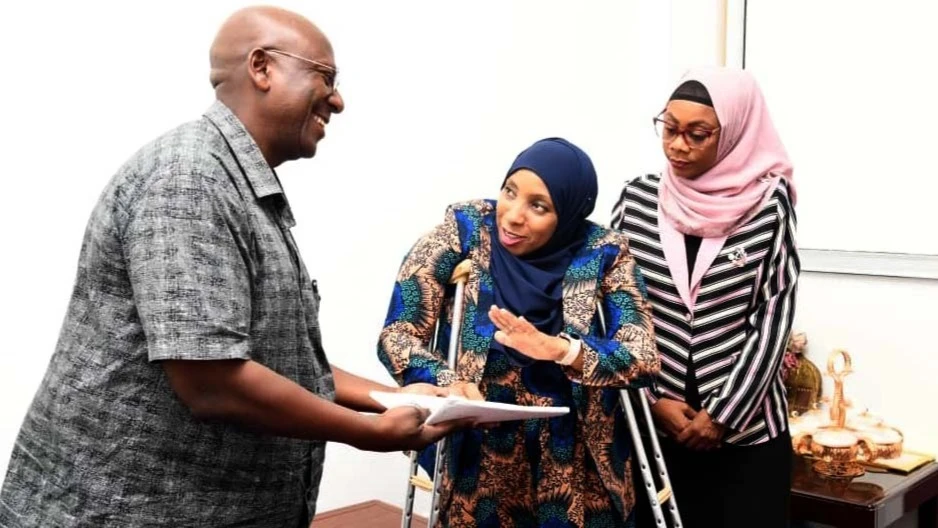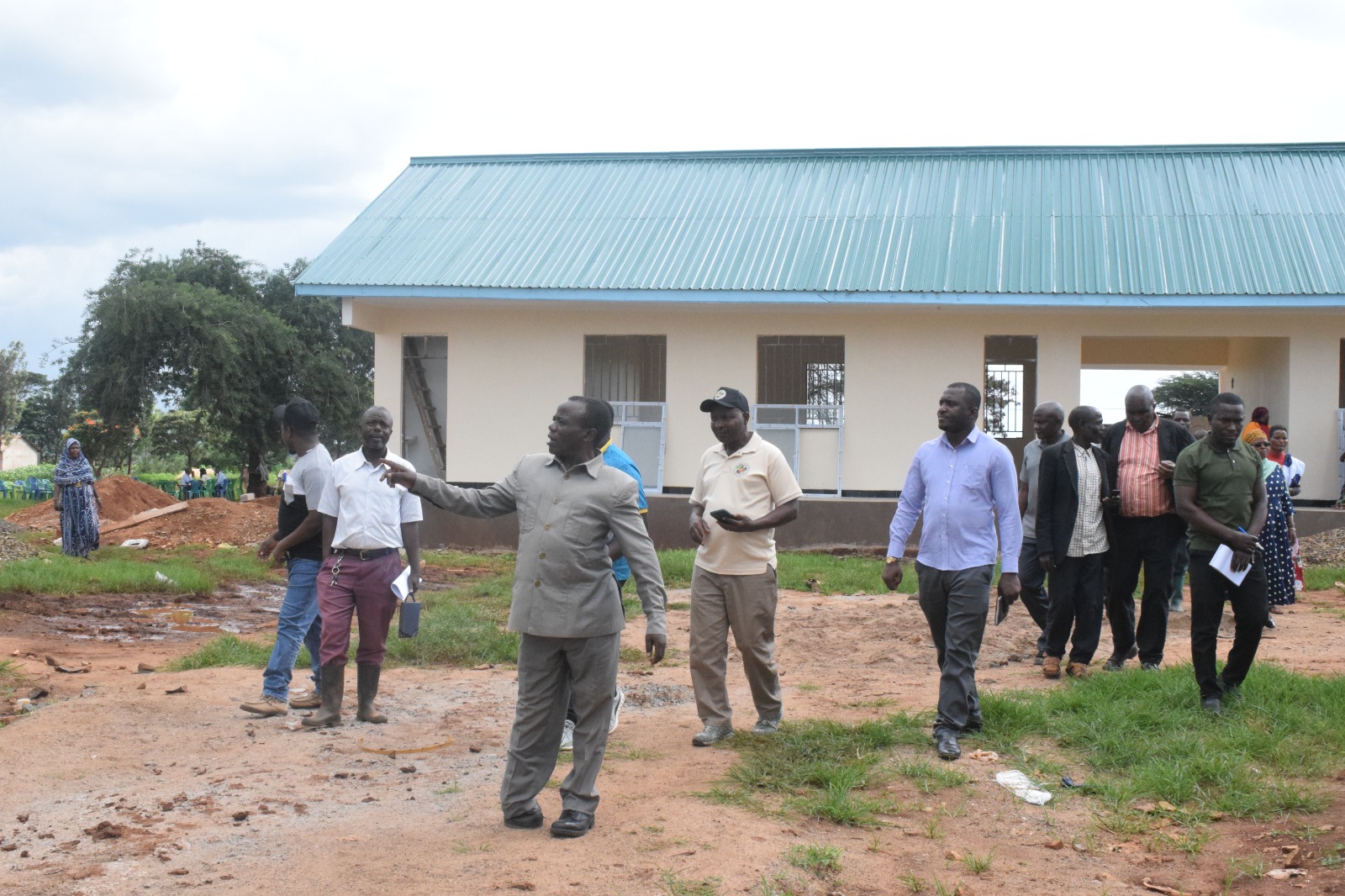TLS: Defending justice, protecting future, challenging the status quo
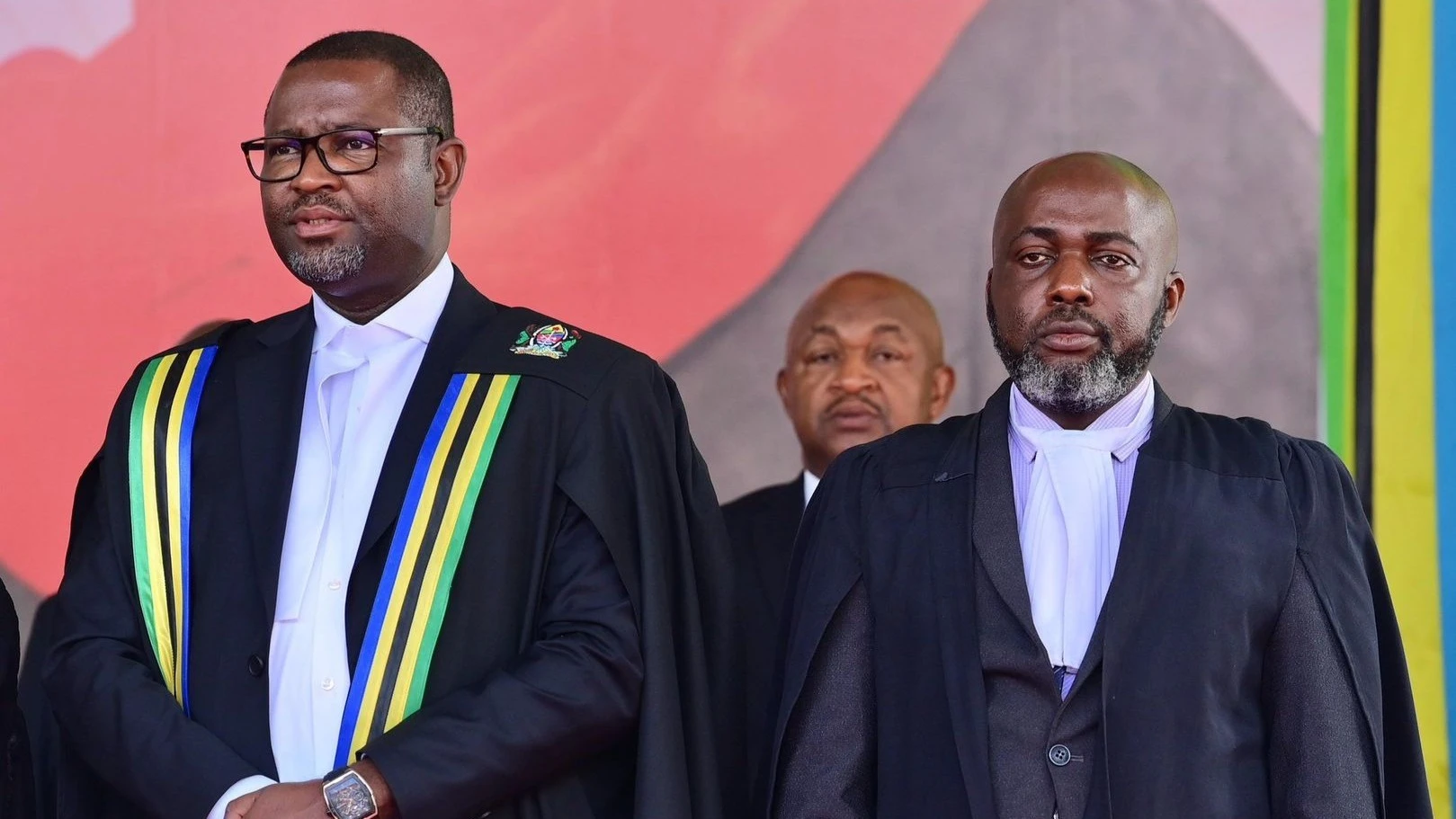
THE legal profession, once a beacon of hope for young graduates, is fast becoming a cruel maze of frustration and dead ends. Boniface Mwabukusi, President of the Tanganyika Law Society (TLS), is calling on the government to rethink its tax policies on fresh-faced lawyers, warning that the current system is crippling their future before it even begins.
Speaking to members of the legal fraternity during the Law Day celebrations in Dodoma on Monday, February 3, 2025, he emphasized that young lawyers deserve fair treatment, not unnecessary hurdles.
He stressed that they are not just professionals but entrepreneurs in their own right—individuals striving to build their futures while safeguarding justice for the community. Instead of being burdened with policies that stifle their growth, they should be empowered to thrive, ensuring that the fight against injustice remains strong for generations to come.
“A young lawyer can spend over five years without making any meaningful gain from their profession,” he laments. “They hustle under the scorching sun, clutching envelopes, chasing opportunities that never come. Many haven’t even touched a major case, yet the government burdens them with heavy taxes—from rental fees to professional charges. How can they grow? How can they thrive when the law itself is scaring them away from practice?”
With too many young lawyers left wandering the streets, their potential untapped, Mwabukusi is clear: something must change, or Tanzania risks losing an entire generation of legal minds before they even get a chance to make their mark.
Again, in a world often clouded by division and skepticism, there remains a rare and noble pursuit: service to others. Mwabukusi embodies this spirit, unwavering in his mission to ensure justice reaches the people who need it most.
His conviction is clear—cooperating with the government is not a matter of personal gain but a responsibility to the citizens of Tanzania.
This stance, however, is not without controversy. In an era where public trust is fragile, any sign of collaboration between independent institutions and the state can ignite suspicion.
The decision by TLS to work with the government on the Samia Legal Aid initiative has sparked debate, with critics quick to assume compromise.
But Mwabukusi remains unfazed. For him, justice should not be a battleground for political posturing—it is a fundamental right that demands cooperation, not confrontation.
Mwabukusi dismissed claims that TLS’s collaboration with the government, particularly through the Samia Legal Aid initiative, signified favoritism or self-interest. Instead, he championed the need for unity in serving the nation, stating that constructive engagement builds rather than erodes justice.
“When we work with the government, it is not about personal benefit. TLS is a legal body with a duty to serve,” he declared, his voice steady with conviction.
Recent debates on social media have raised eyebrows over the organization’s decision to accept a vehicle from the Ministry of Constitution and Legal Affairs. Some critics suggested it was a sign of undue allegiance, but Mwabukusi brushed off such concerns. The vehicle, he explained, is a tool to help TLS reach those who would otherwise be denied access to justice.
“We will accept any assistance that enables us to fulfill our duty. Our organisation lacks the financial resources to serve every citizen adequately, so we welcome the support that helps us bridge that gap,” he explained.
He went further to challenge perceptions about his leadership style. Once known for his outspoken nature, some have suggested he has mellowed since taking office. But for Mwabukusi, leadership is not about noise—it is about action.
“People ask why I don’t speak as I used to. Leadership is not about endless talking. It is about doing,” he said with quiet confidence.
Beyond these debates, he highlighted deeper struggles within the legal profession, particularly the harsh reality of defending those accused of serious crimes. With legal fees ranging from a meagre 100,000 to 300,000 Tanzanian shillings—barely enough to cover essential case preparation—many lawyers find themselves in moral dilemmas, torn between professional ethics and financial sustainability.
Furthermore, he lamented public misconceptions about their work, with many failing to grasp that legal defence is a fundamental right, not a moral endorsement of a client’s actions.
“Even if an entire village despises someone, if I am their lawyer, they have a right to my representation. But too often, lawyers are unfairly judged alongside their clients,” he observed, recalling instances where advocates have been detained merely for defending unpopular cases.
Despite these challenges, Mwabukusi remains resolute, and steadfast in his belief that justice must be both served and seen to be served. For him, the pursuit of fairness is not about optics or politics—it is about duty, about standing firm in the service of those who might otherwise be left without a voice.
The TLS boss has called for a critical review of laws governing natural resources, arguing that some of them leave the nation at a disadvantage. He stressed that Tanzania’s wealth—bestowed by nature—should primarily benefit its own people rather than external interests.
"It is time for Parliament to re-examine these laws. Some are simply unfriendly to the very citizens whose God-given resources should uplift them. We cannot afford to be spectators while our nation’s wealth slips through our fingers," he asserted.
TLS has long been vocal about safeguarding national assets. In 2023, the society stood firm against the controversial DP World contract, challenging the government’s decision to grant the Emirati firm control over Tanzanian port operations.
Their opposition was rooted in concerns over sovereignty, economic fairness, and the long-term impact on local interests. For Mwabukusi and TLS, the fight for justice is not just about courtrooms—it is about ensuring that future generations inherit a country whose resources work for them, not against them.
It is time for Parliament to re-examine these laws. Some are simply unfriendly to the very citizens whose God-given resources should uplift them. We cannot afford to be spectators while our nation’s wealth slips through our fingers," Mwabukusi asserted.
For years, the Tanganyika Law Society (TLS) has stood as a guardian of national interests, challenging decisions that threaten Tanzania’s economic autonomy. It reminds leaders that true governance is not about short-term gains but long-term responsibility, ensuring the nation’s resources benefit its people first.
Their role in opposing the 2023 DP World contract was a testament to this unwavering commitment. By resisting the agreement that would have granted an Emirati firm significant control over Tanzania’s ports, TLS underscored the need for transparency, fairness, and national self-determination.
This kind of legal resistance is not unique to Tanzania. Around the world, strong democracies are built on the back of institutions that dare to speak truth to power. In the United States, legal bodies and civil rights groups have repeatedly taken the government to court over policies that threaten constitutional rights.
In the United Kingdom, legal professionals have challenged decisions that undermine public interest, ensuring that economic agreements benefit the people, not just a privileged few. These examples highlight a crucial reality: a strong legal community is the backbone of a nation’s democratic health.
For TLS, the fight is not just about ports, contracts, or policies—it is about the legacy left behind for future generations. Mwabukusi and his peers understand that justice does not begin and end in the courtroom. It is woven into the very fabric of governance, economic policies, and the way a nation values its people. If Tanzanians do not defend what is theirs today, what will be left for their children tomorrow?
Top Headlines
© 2025 IPPMEDIA.COM. ALL RIGHTS RESERVED













